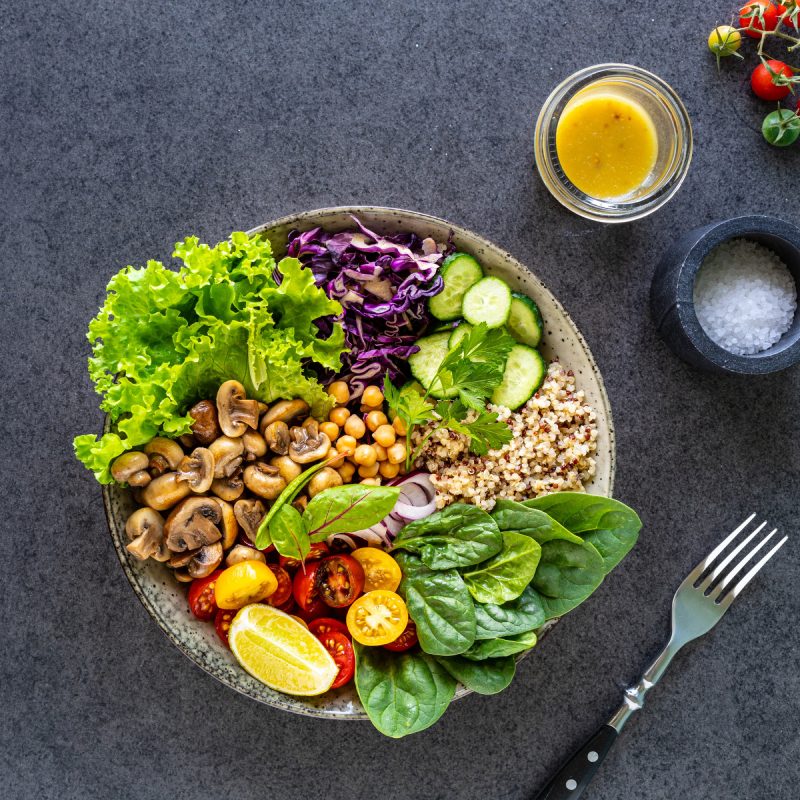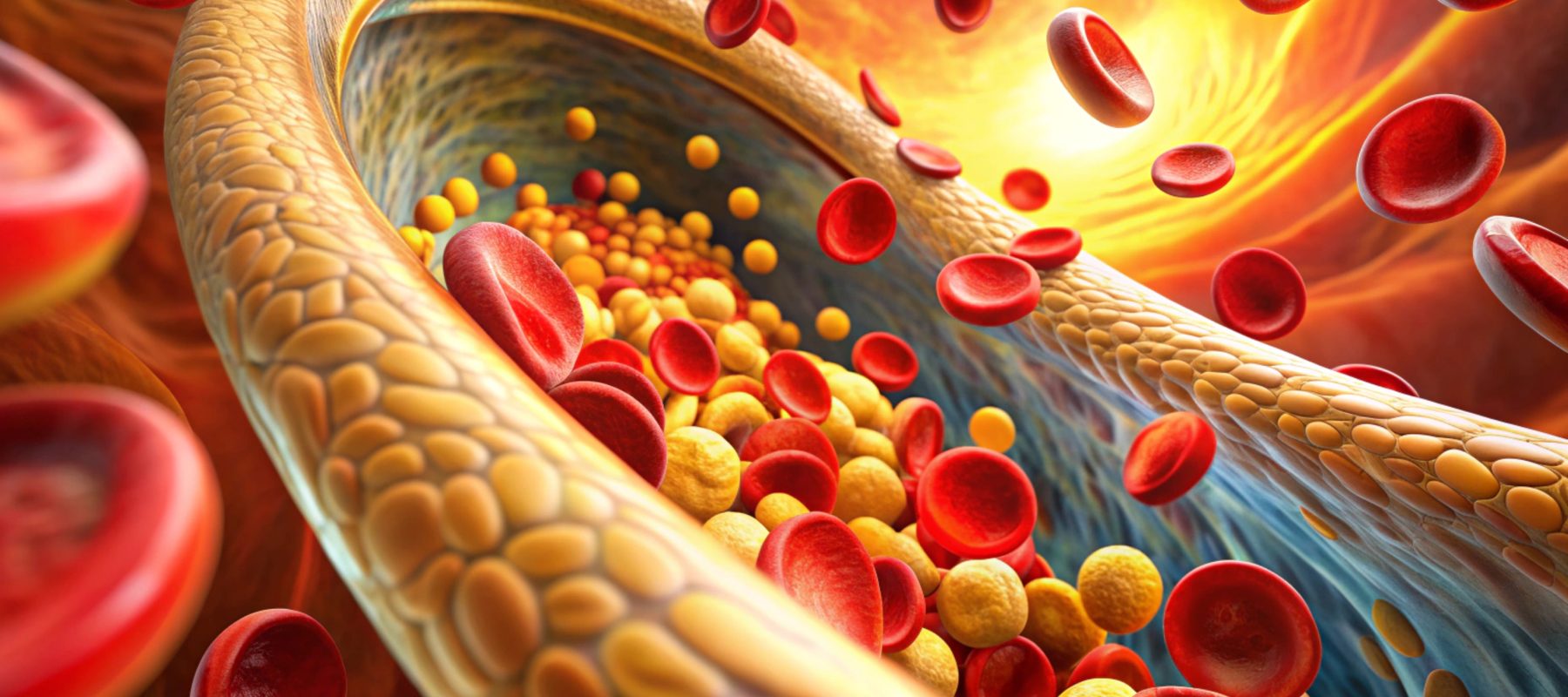Healthy cholesterol levels are crucial for heart health and lowering cardiovascular disease risks. High cholesterol levels can result in plaque buildup in your arteries, increasing the risk of heart attack and stroke. Fortunately, several natural ways exist to lower cholesterol and improve heart health. This blog provides an exclusive guide to adopting heart-healthy habits to lower cholesterol levels.
Tips on Lowering Your Cholesterol
1. Adopt a Heart-Healthy Diet
Increase Soluble Fiber: Soluble fiber helps lower LDL (bad) cholesterol by preventing its absorption into the bloodstream. Foods with soluble fiber include oats, barley, beans, and fruits such as apples and pears. To reap the benefits, consume 25-38 grams of fiber daily.

Increase Soluble Fiber: Soluble fiber helps lower LDL (bad) cholesterol by preventing its absorption into the bloodstream. Foods with soluble fiber include oats, barley, beans, and fruits such as apples and pears. To reap the benefits, consume 25-38 grams of fiber daily.
Embrace Plant-Based Foods: A diet rich in fruits, vegetables, and whole grains can lower LDL cholesterol and provide heart-healthy nutrients. Nuts and seeds’ phytosterols can also help reduce cholesterol levels.
2. Regular Physical Activity
Engaging in at least 30 minutes of moderate exercise daily can help raise HDL (good) cholesterol while lowering LDL. Brisk walking, cycling, and swimming are excellent choices for improving your lipid profile and overall heart health. Besides, you can consider doing aerobic exercise and strength training to generate more benefits. According to the American Heart Association (AHA), you should do 150 minutes of moderate aerobic exercise weekly to lower or maintain cholesterol levels.
3. Manage Your Weight
Being obese or having excess weight can accelerate the risk of developing cholesterol issues. Even a little weight loss of 5-10% of your body weight can significantly lower cholesterol levels. More significantly, weight loss has a double benefit on cholesterol by lowering bad LDL and boosting good HDL. Consider consulting your doctor to craft a nutrient-dense diet plan for sustainable weight loss and management. Therefore, losing excess weight improves your lipid profile and reduces the risk of high cholesterol and related health issues.

4. Quit Smoking
Smoking injures blood vessels and accelerates plaque buildup in the arteries. Quitting smoking improves your HDL levels and benefits your overall heart health. Moreover, if you quit smoking, you can boost your cholesterol transportation and absorption. This reduces the risk of heart attack and stroke.
5. Moderate Alcohol Consumption
Extreme consumption of alcohol can result in high cholesterol, high blood pressure, and heart failure. If you consume it in moderation, it can increase good HDL cholesterol. This helps decrease the possibility of heart disease.
However, the AHA and Centers for Disease Control and Prevention (CDC) disagree with this concept. Instead, the AHA suggests not consuming wine or other alcoholic beverages to maintain lower cholesterol and improve heart health. Despite this, if you consume, the CDC recommends having only two drinks per day for males. However, the CDC suggests only one drink for females on the days they drink.
6. Consider Supplements
Certain supplements, such as psyllium husk, red yeast rice, and garlic, have been shown to lower LDL cholesterol. These can be highly useful when combined with a healthy diet and regular exercise. Always take the advice of a healthcare provider before starting any new supplements.
Moreover, you can consider other supplement options like fish oil and coenzyme Q10. Fish oil has omega-3 fatty acids, DHA, and EPA. However, some fish oil supplements may even increase LDL despite its triglyceride level-reducing properties. Additionally, coenzyme Q10 refers to a food chemical that stimulates cells to produce energy. It is similar to vitamins, except the body can produce its own Q10. This prevents deficiency. However, the research about its role in reducing cholesterol is still ongoing.

7. Reduce Meat Intake
Reducing red meat and replacing it with leaner proteins like poultry or plant-based alternatives can help lower cholesterol levels. Incorporating more meatless meals into your diet can make a noticeable difference.
8. Consider Whey Pro
Whey protein, found in dairy products or supplements, has been shown to help reduce LDL cholesterol and blood pressure. Including whey protein in the daily diet can be a convenient way to support your heart health.
Foods That Help Lower LDL Cholesterol
Several food items can lower cholesterol in various ways. Some offer soluble fiber. This fiber binds cholesterol and its precursors in the digestive system and pulls them out of the body. On the other hand, some offer polyunsaturated fats. This fat helps lower LDL directly. Also, a few foods contain plant sterols and stanols, which hinder the body from absorbing cholesterol.
Now, let’s talk about a few food items that lower cholesterol.

- Oats: Start consuming a bowl of oatmeal or even cold oat-based cereal. It contains soluble fiber that lowers cholesterol.
- Beans: They are rich in soluble fiber. Also, they take a while for the body to digest them, making you stay fuller.
- Eggplant and Okra: These items contain low calories and loads of soluble fiber.
- Nuts: Eating almonds, walnuts, peanuts, cashews, and other nuts is good for heart health. Add 2 ounces of any nut to your daily diet to lower LDL. Nuts also contain additional nutrients to protect the heart.
- Vegetable Oil: Liquid vegetable oils, such as sunflower and safflower, can lower LDL. However, they should be consumed in limited amounts to generate good results.
- Fatty Fish: Eating fish twice or thrice a week — instead of meat — can reduce LDL. This is because fish contains LDL-boosting saturated fats and delivers LDL-reducing omega-3 fats. These omega-3s lower triglycerides in the bloodstream. They also shield the heart by preventing the onset of abnormal heart rhythms.
- Apples, Grapes, Strawberries, and citrus fruits are loaded with pectin, a kind of soluble fiber that reduces LDL.
The Bottom Line
Incorporating these strategies into your lifestyle can lower cholesterol levels and enhance heart health. For individuals with high cholesterol who do not see improvements from lifestyle changes alone, medications may be necessary. However, maintaining these healthy habits can help reduce the need for medication and improve its effectiveness. Remember, these changes work best when they become a long-term part of your routine.
For more health and wellness blogs and updates, stay tuned to World of Heal.
Exciting guest posting opportunities are available on our website! For details, contact us at affiliates[@]prasarnet[.]com.

Vicky collaborates closely with doctors, scientists, and professionals in the medical and pharmaceutical industries. Having worked with SBU Community Clinic in the USA, he is dynamic in writing and publishing health-related guest blogging services, offering valuable insights in the healthcare field.














